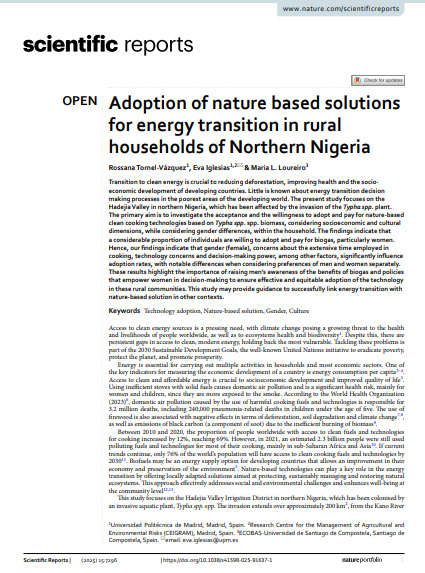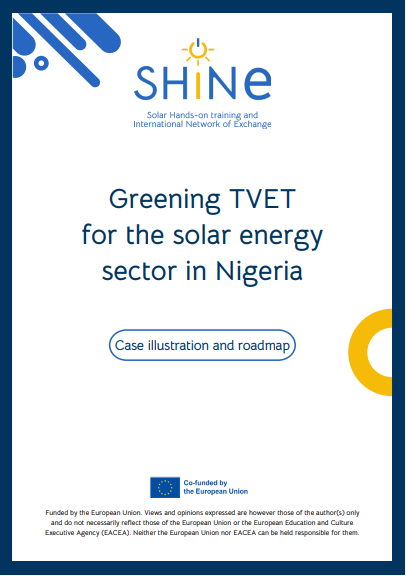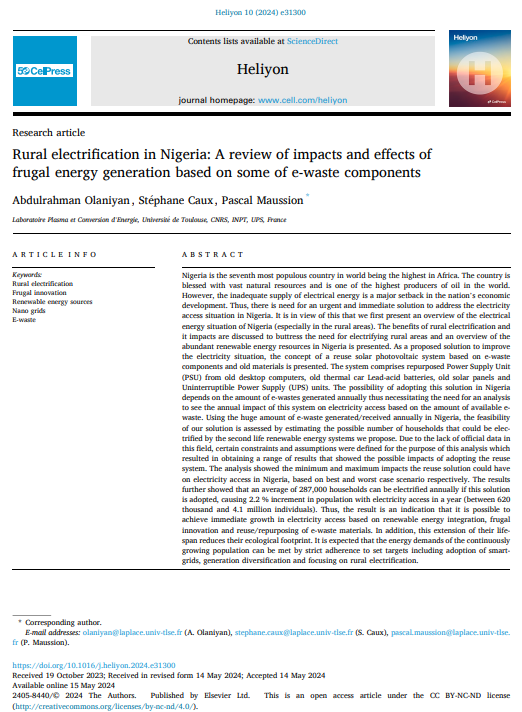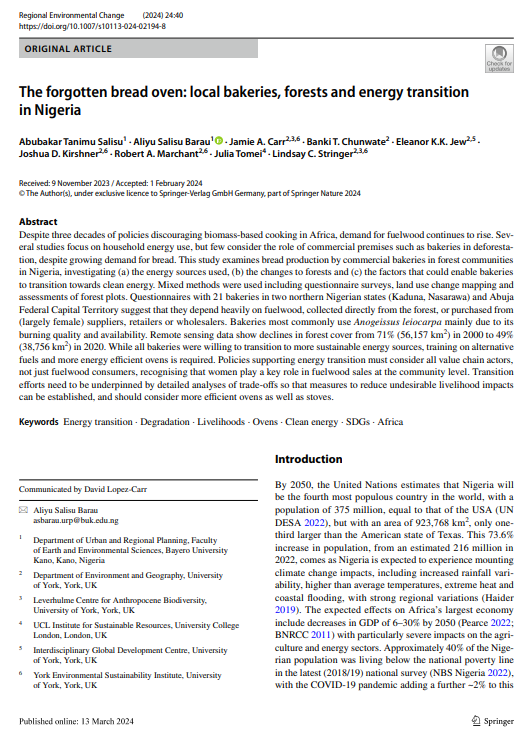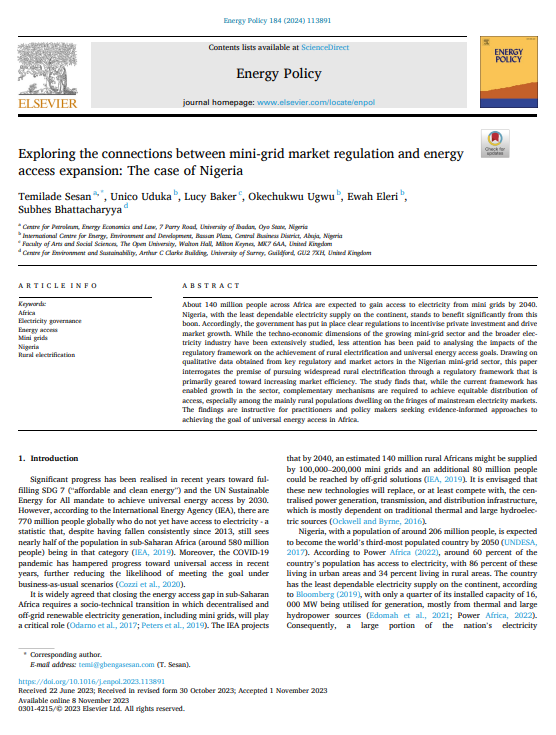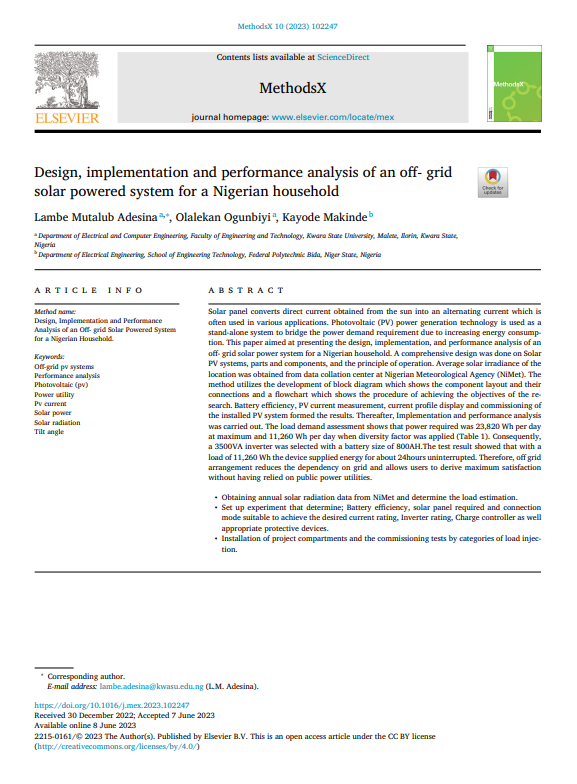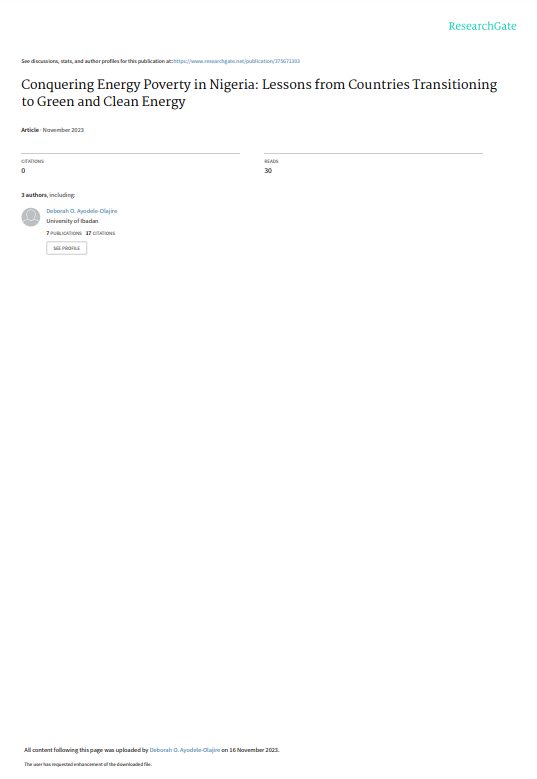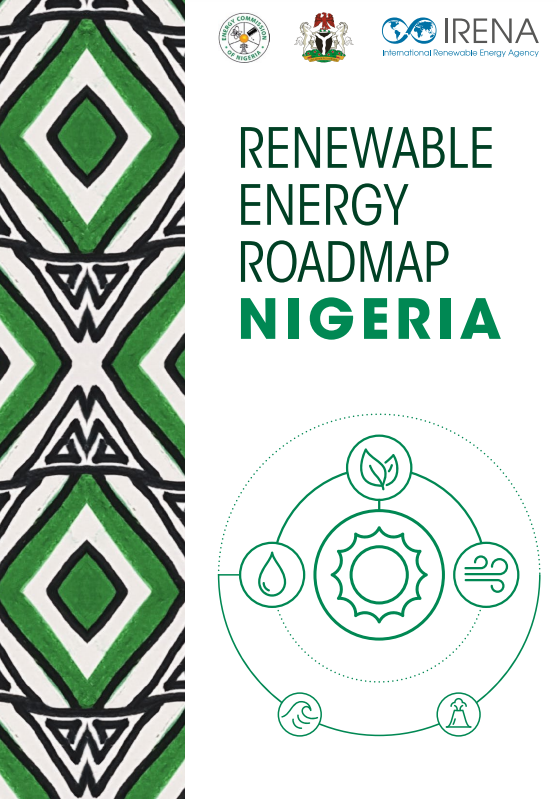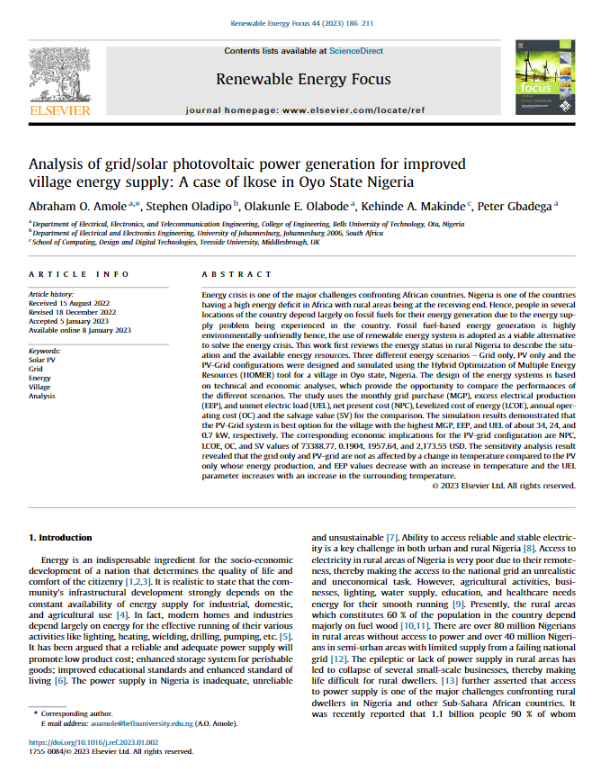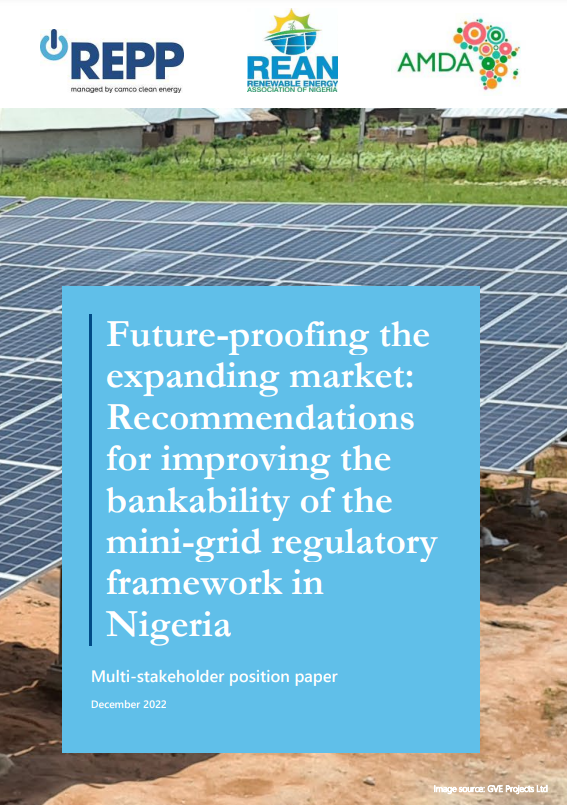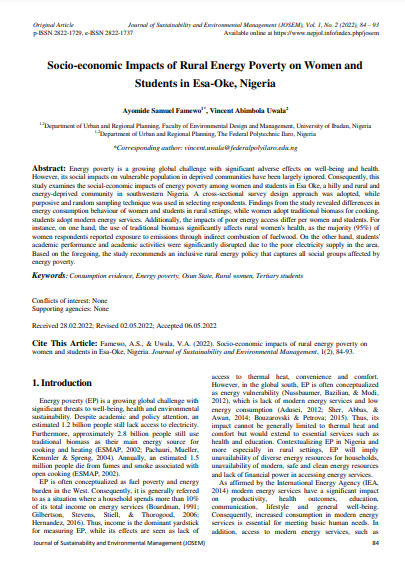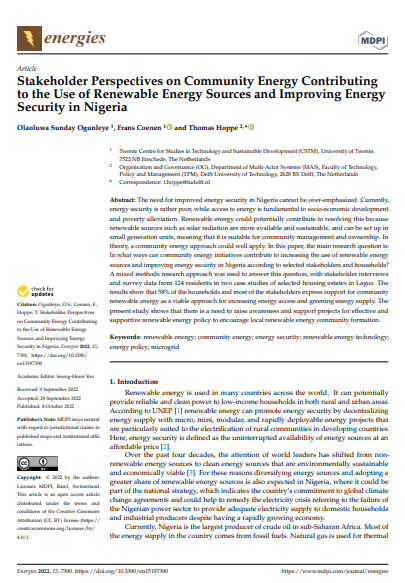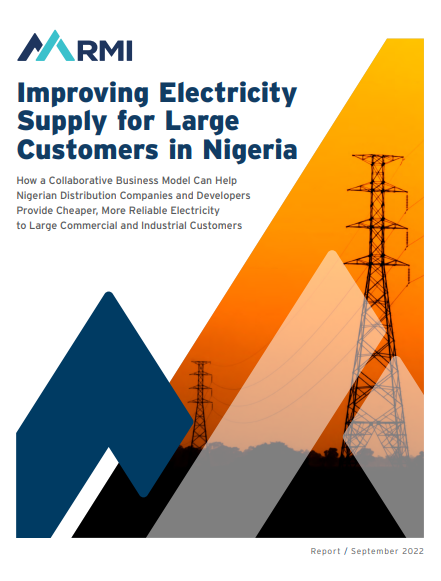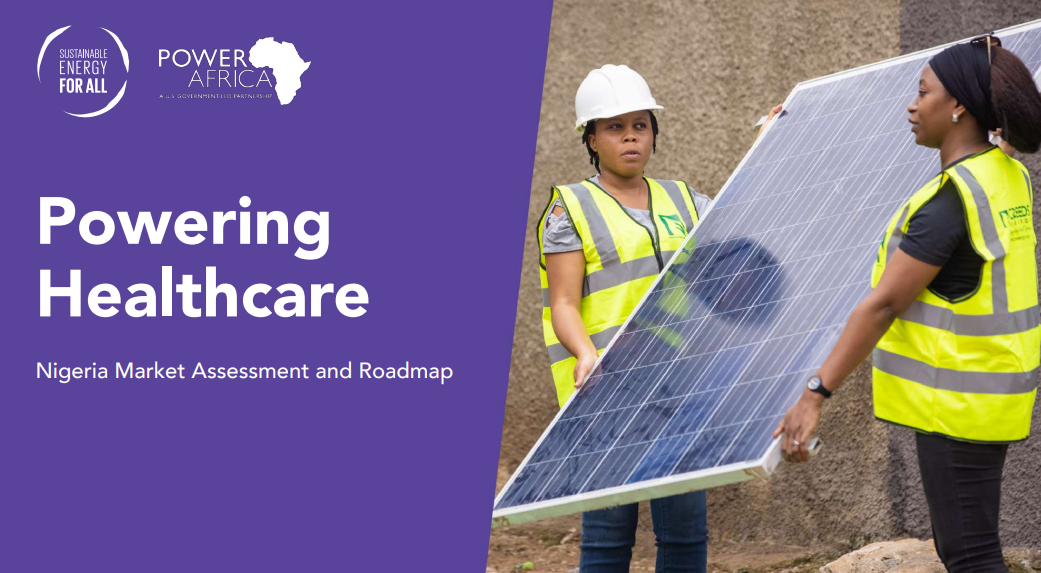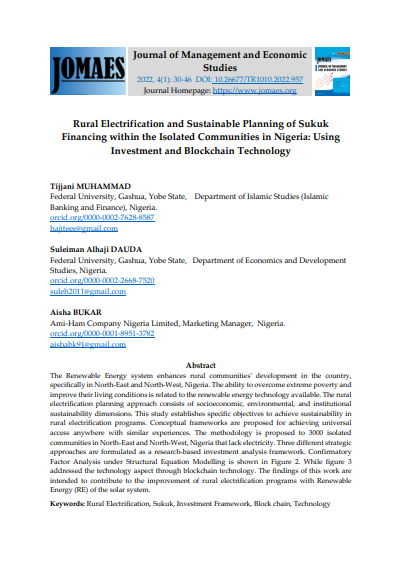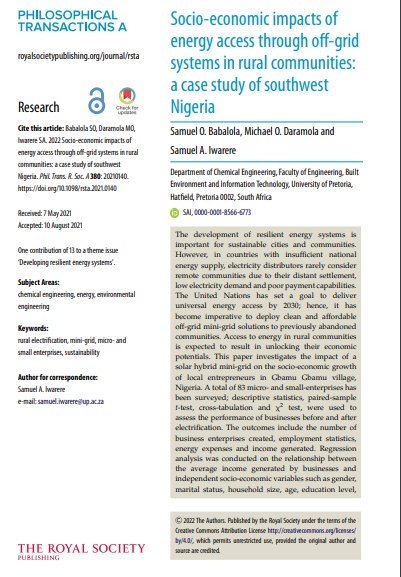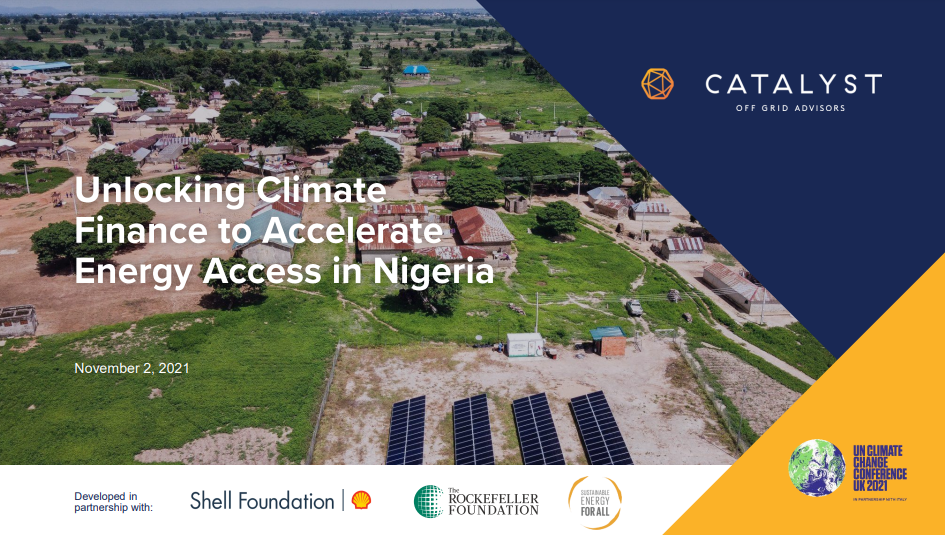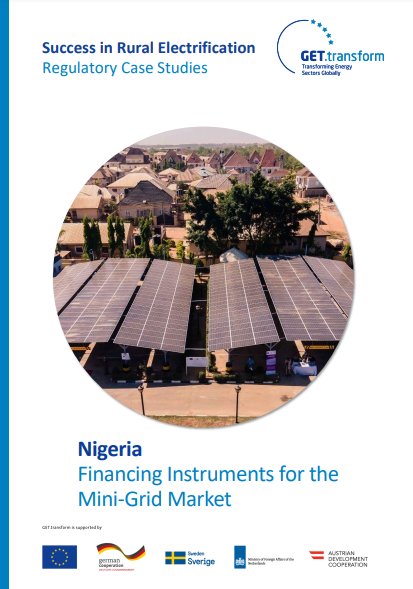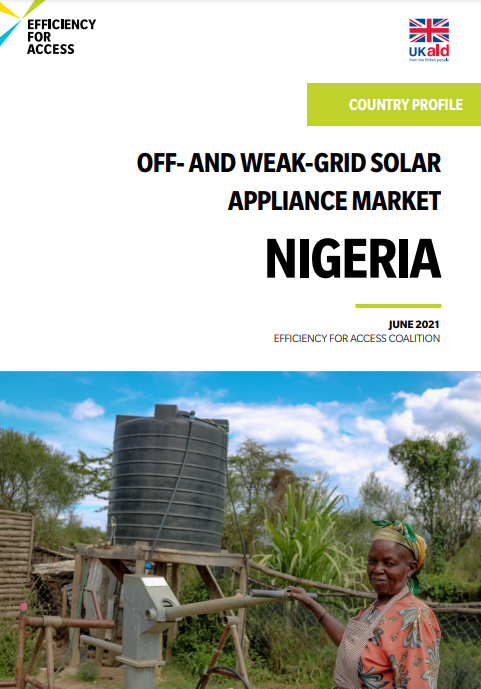We post here the relevant reports for the power sector in Nigeria. Feel free to join our efforts and share us any other you may have found. We'd be glad to add them to the list. Just send an email to This email address is being protected from spambots. You need JavaScript enabled to view it.
Publication date: 1 March 2025
Author: Nature Portfolio
Description: Transition to clean energy is crucial to reducing deforestation, improving health and the socio-economic development of developing countries. Little is known about energy transition decision making processes in the poorest areas of the developing world. The present study focuses on the Hadejia Valley in northern Nigeria, which has been affected by the invasion of the Typha spp. plant. The primary aim is to investigate the acceptance and the willingness to adopt and pay for nature-based clean cooking technologies based on Typha spp. spp. biomass, considering socioeconomic and cultural dimensions, while considering gender differences, within the household.
Download Report >>
Visit Website >>
Publication date: 13 September 2024
Author: SHINE
Description: Nigeria’s renewable energy sector, underpinned by key policies such as the National Renewable Energy and Energy Eciency Policy (NREEEP) of 2015, the Mini-Grid Regulation by the Nigerian Electricity Regulatory Commission (NERC), and the Renewable Energy Master Plan (REMP), has set ambitious targets for integrating solar energy into its energy mix. Despite this policy framework and initiatives like the Energizing Education Programme (EEP), which aims to provide solar energy to 37 federal universities, significant gaps exist in workforce development, particularly in the alignment of technical skills with the needs of the solar industry.
Download Report >>
Publication date: 15 May 2024
Author: Heliyon
Description: Nigeria is the seventh most populous country in world being the highest in Africa. The country is blessed with vast natural resources and is one of the highest producers of oil in the world. However, the inadequate supply of electrical energy is a major setback in the nation's economic development. Thus, there is need for an urgent and immediate solution to address the electricity access situation in Nigeria. It is in view of this that we first present an overview of the electrical energy situation of Nigeria (especially in the rural areas). The benefits of rural electrification and it impacts are discussed to buttress the need for electrifying rural areas and an overview of the abundant renewable energy resources in Nigeria is presented.
Download Report >>
Visit Website >>
Publication date: 13 March 2024
Author: Springer
Description: Despite three decades of policies discouraging biomass-based cooking in Africa, demand for fuelwood continues to rise. Several studies focus on household energy use, but few consider the role of commercial premises such as bakeries in deforestation, despite growing demand for bread. This study examines bread production by commercial bakeries in forest communities in Nigeria, investigating (a) the energy sources used, (b) the changes to forests and (c) the factors that could enable bakeries to transition towards clean energy. Mixed methods were used including questionnaire surveys, land use change mapping and assessments of forest plots. Questionnaires with 21 bakeries in two northern Nigerian states (Kaduna, Nasarawa) and Abuja Federal Capital Territory suggest that they depend heavily on fuelwood, collected directly from the forest, or purchased from (largely female) suppliers, retailers or wholesalers. Bakeries most commonly use Anogeissus leiocarpa mainly due to its burning quality and availability. Remote sensing data show declines in forest cover from 71% (56,157 km²) in 2000 to 49% (38,756 km²) in 2020. While all bakeries were willing to transition to more sustainable energy sources, training on alternative fuels and more energy efficient ovens is required. Policies supporting energy transition must consider all value chain actors, not just fuelwood consumers, recognising that women play a key role in fuelwood sales at the community level. Transition efforts need to be underpinned by detailed analyses of trade-offs so that measures to reduce undesirable livelihood impacts can be established, and should consider more efficient ovens as well as stoves.
Visit Website >>
Publication date: January 2024
Author: Elsevier
Description: About 140 million people across Africa are expected to gain access to electricity from mini grids by 2040. Nigeria, with the least dependable electricity supply on the continent, stands to benefit significantly from this boon. Accordingly, the government has put in place clear regulations to incentivise private investment and drive market growth. While the techno-economic dimensions of the growing mini-grid sector and the broader electricity industry have been extensively studied, less attention has been paid to analysing the impacts of the regulatory framework on the achievement of rural electrification and universal energy access goals.
Download Report >>
Visit Website >>
Publication date: 7 June 2023
Authors: Elsevier
Description: Solar panel converts direct current obtained from the sun into an alternating current which is often used in various applications. Photovoltaic (PV) power generation technology is used as a stand-alone system to bridge the power demand requirement due to increasing energy consumption. This paper aimed at presenting the design, implementation, and performance analysis of an off- grid solar power system for a Nigerian household.
Download Report >>
Visit Website >>
Publication date: November 2023
Authors: Deborah Ayodele-Olajire, Opeyemi Gbadegesin & Adeniyi Gbadegesin
Description: Overcoming energy poverty is a crucial measure in achieving sustainable development and enhancing the living conditions of millions of people. Despite having ample energy sources such as solar, wind, biomass, crude oil, natural gas, and coal, Nigeria has about 80 million individuals suffering from energy poverty. This situation is exacerbated by the global energy crisis, with a multiple vulnerability situation due to climate change. Therefore, Nigeria must shift to green (renewable) and clean energy sources. This paper adopts a doctrinal and comparative research approach to explore the lessons Nigeria can learn from other developing countries and a former fossil-dependent nation that are transitioning to green and clean energy. The countries provide valuable insights into crafting efficient policy frameworks, creating renewable energy infrastructure, and involving stakeholders in the transition process. The paper stresses that Nigeria's comprehensive and inclusive energy strategy should prioritize providing all citizens access to economical and clean energy, promoting sustainable economic growth and environmental preservation. Ultimately, the paper concludes that through this approach, Nigeria can unlock its potential as a leader in Africa's energy sector and quicken its transition to a prosperous and green future.
Download Report >>
Visit Website >>
Publication date: January 2023
Authors: IRENA
Description: This report, developed in collaboration with the Energy Commission of Nigeria, analyses the additional renewable energy deployment potential up to the year 2050, with an additional 2030 focus to aid shorter-term policy development.
Download Report >>
Visit Website >>
Publication date: March 2023
Authors: Elsevier
Description: Energy crisis is one of the major challenges confronting African countries. Nigeria is one of the countries having a high energy deficit in Africa with rural areas being at the receiving end. Hence, people in several locations of the country depend largely on fossil fuels for their energy generation due to the energy supply problem being experienced in the country. Fossil fuel-based energy generation is highly environmentally-unfriendly hence, the use of renewable energy system is adopted as a viable alternative to solve the energy crisis. This work first reviews the energy status in rural Nigeria to describe the situation and the available energy resources. Three different energy scenarios – Grid only, PV only and the PV-Grid configurations were designed and simulated using the Hybrid Optimization of Multiple Energy Resources (HOMER) tool for a village in Oyo state, Nigeria.
Download Report >>
Visit Website >>
Publication date: November 2022
Authors: ODI / WRI
Description: Nigeria’s energy future is at a crossroads. Despite its longer-term net zero climate goals, Nigeria remains reliant on the oil and gas industry. At the same time, the country continues to grapple with major development challenges, including improving access to healthcare, education, basic services and infrastructure.
Download Report >>
Visit Website >>
Publication date: December 2022
Authors: REPP / REAN / AMDA
Description: Over the last few years, mini-grids have played a key role in implementing Nigeria’s energy access and sustainable energy goals. They are now widely acknowledged as an integral component of the country’s energy ecosystem, delivering sustainable and reliable electricity access to nearly 27 thousand household living in areas that, until now, were out of reach of – or unreliably served by – the main grid infrastructure.
Download Report >>
Visit Website >>
Publication date: 26 May 2022
Author: JOSEM
Description: Energy poverty is a growing global challenge with significant adverse effects on well-being and health. However, its social impacts on vulnerable population in deprived communities have been largely ignored. Consequently, this study examines the social-economic impacts of energy poverty among women and students in Esa Oke, a hilly and rural and energy-deprived community in southwestern Nigeria.
Download Report >>
Visit Website >>
Publication date: 8 October 2022
Author: MDPI
Description: The need for improved energy security in Nigeria cannot be over-emphasized. Currently, energy security is rather poor, while access to energy is fundamental to socio-economic development and poverty alleviation. Renewable energy could potentially contribute to resolving this because renewable sources such as solar radiation are more available and sustainable, and can be set up in small generation units, meaning that it is suitable for community management and ownership.
Download Report >>
Visit Website >>
Publication date: September 2022
Author: RMI
Description: Industrialization is gaining pace in many sub-Saharan African countries. However, large commercial and industrial (C&I) customers in Nigeria continue to be hampered by unreliable electricity supply from the national grid. Consequently, most large C&I customers have resorted to fossil fuel-powered self-generation which increases costs and reduces profitability. To reduce fossil fuel self-generation costs, large C&I customers are beginning to take advantage of declining renewable energy prices to install their own captive distributed energy resource (DER) systems.
Visit Website >>
Publication date: 29 March 2022
Author: SEforALL
Description: The Powering Healthcare Nigeria Market Assessment and Roadmap was developed by Sustainable Energy for All (SEforALL), under the Power Africa-funded Powering Healthcare Africa Project, to provide the Government of Nigeria and its development partners with a data-driven overview and practical recommendations for planning and coordination of electrifying the country’s underserved health facilities. The document consists of stakeholder and interventions mapping, data analysis, technology assessment, funding and financing mechanisms, and delivery models.
Download Report >>
Visit Website >>
Publication date: 24 March 2022
Author: Journal of Management and Economic Studies
Description: The Renewable Energy system enhances rural communities' development in the country, specifically in North-East and North-West, Nigeria. The ability to overcome extreme poverty and improve their living conditions is related to the renewable energy technology available. The rural electrification planning approach consists of socioeconomic, environmental, and institutional sustainability dimensions. This study establishes specific objectives to achieve sustainability in rural electrification programs. Conceptual frameworks are proposed for achieving universal access anywhere with similar experiences. The methodology is proposed to 3000 isolated communities in North-East and North-West, Nigeria that lack electricity. Three different strategic approaches are formulated as a research-based investment analysis framework. Confirmatory Factor Analysis under Structural Equation Modelling is shown in Figure 2. While figure 3 addressed the technology aspect through blockchain technology. The findings of this work are intended to contribute to the improvement of rural electrification programs with Renewable Energy (RE) of the solar system.
Download Report >>
Visit Website >>
Publication date: 28 February 2022
Author: The Royal Society
Description: The development of resilient energy systems is important for sustainable cities and communities. However, in countries with insufficient national energy supply, electricity distributors rarely consider remote communities due to their distant settlement, low electricity demand and poor payment capabilities. The United Nations has set a goal to deliver universal energy access by 2030; hence, it has become imperative to deploy clean and affordable off-grid mini-grid solutions to previously abandoned communities. Access to energy in rural communities is expected to result in unlocking their economic potentials.
Download Report >>
Visit Website >>
Publication date: 2 November 2021
Author: Catalyst Off Grid Advisors
Description: The country deep dives represent the third phase of the research, conducted by Catalyst Off-Grid Advisors and commissioned by Shell Foundation in partnership with Rockefeller Foundation and SEforAll, building on the Capital needs to connect off-grid households in sub-Saharan Africa report released in 2017, and the A Green Energy Future for Africa that launched in May 2021 at the US Earth Day Summit presenting the $200bn market opportunity for climate-first investors to contribute to universal energy access by 2030 as well as achieve global net zero goals.
Download Report >>
Visit Website >>
Publication date: August 2021
Author: GET.transform
Description: 75 mini-grids are currently in operation in Nigeria, showing a total capacity of approximately 7 MW and serving about 160,000 people. The latest GET.transform case study illustrates the country’s successful approach to establishing large-scale mini-grid programmes.
One of the success factors in Nigeria is the development of strong financing instruments, on top of a series of power sector reforms and regulations in place for the development of mini-grids. The clear instruments boost private sector confidence, and has allowed Nigeria to attract significant funding from donors like the World Bank and African Development Bank to support its electrification endeavours.
Download Report >>
Visit Website >>
Publication date: June 2021
Author: Efficiency for Access Coalition
Description: Mr Ope Olawale, 40 years, is a farmer who lives with his wife and three children in Madi village, Iwajowa local government area about 170km from Ibadan city, Oyo State, Nigeria. There is no electricity in his village. About a year ago, he noted that more people in the village had bought mobile phones but were struggling to charge them. Most households in the village also did not have television sets mainly because there was no electricity to power them. Yet, the youth in the community liked to stay updated on local and global events primarily football leagues. He saw an opportunity in using solar to address these challenges but first needed to save up enough money.
Download Report >>
Visit Website >>





